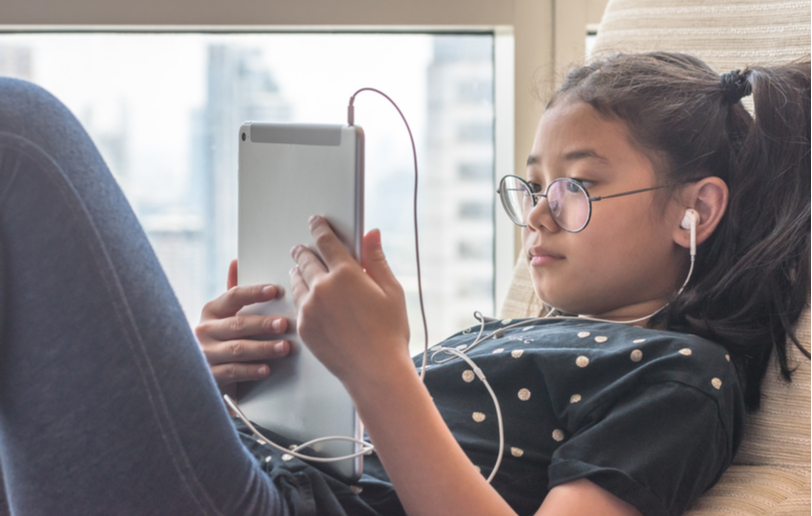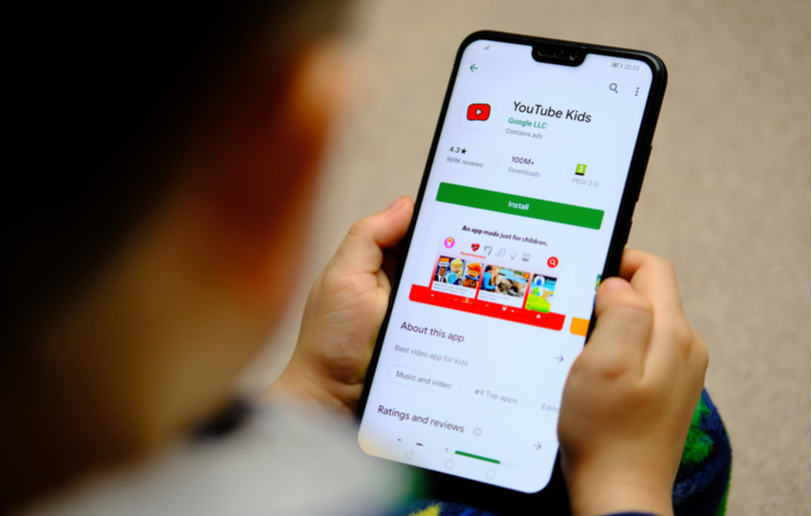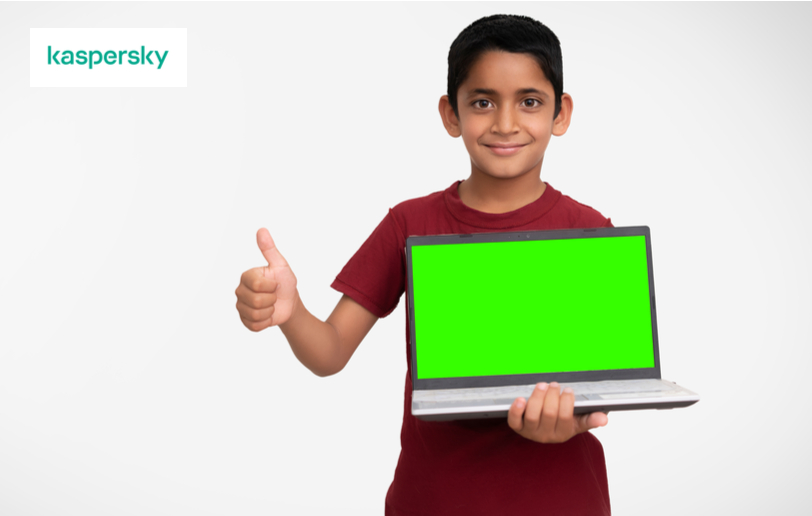Worried about your kids’ phone use? Don’t, says Kaspersky!
Parents often worry that their children spend too much time on their smart phones and are wasting their time! But is it really wasted time? Andrey Sidenko, Head of Online Child Safety at Kaspersky, explains that confronting them or simply taking away their devices is not the best approach. He urges parents to speak their kids’ language instead, by finding a common interest and understanding what exactly they’re doing on their phones.

The rapid inclusion of children into the digital world is now the status quo and the inevitable new reality. According to a Kaspersky survey, more than half, around 55%, of children across the UAE are bought or get access to their first Internet connected device by the age of seven. And this figure catapults to 99% for those aged 13-years-old. Naturally, a parent’s first reaction to this phenomenon is to try to control its usage by limiting access to the Internet, or by a blanket restriction of smart devices. However, implementing such measures will deprive the children of valuable and useful skills, whether technical or social, that will prove helpful as they grow older.
What children do on the Internet?
Of course, the first thing parents worry about is the amount of screen time: 8% of families in the UAE are uncertain about their children’s digital life, with 73% claiming that their child spends too much time on the phone, or doing nothing useful.
According to The ‘Responsible Digital Parenting‘ survey, 73% of children in the UAE watch video blogs, including those dedicated to games and toys (68%), music (40%), computer games (38%) and movies (38%).
Children are basically interested in the same things as many adults: music, movies, TV series, memes and lifestyle bloggers. This means that in these areas we can and should look for something in common: ask, discuss, recommend and also teach your kids how to approach their choice of content consciously.

According to the survey, parents are simply unaware of what their children are interested in – and most of them are equally afraid of the unknown. In fact, when studying the content children are interested in and subscribed-to, it is unlikely anything out of the ordinary is found. Children are primarily visiting sites to download programmes, movies, music, or messaging apps.
As an initial step, getting a better understanding of what attracts children towards these gadgets is instrumental to guiding their habits. At first glance, the majority of the content they like may seem frivolous and somewhat unimportant to parents. However, according to UNICEF, all online activities undertaken by kids, regardless of how pointless they may appear, help them acquire and even master vital digital skills. Playing video games and watching video clips, for example, can motivate young children to engage in educational, informational and social digital experiences.
The ability to analyse and make decisions quickly, as well as work in a team, can be developed through encouraging children to expand their online activities beyond entertainment. Children at a young age are generally supposed to experiment, try new things and expand their interests from time to time.
The benefits of YouTube and TikTok as an example
Arrange a family viewing of a YouTube show, interview, popular science video or even stream a game, and at the end share your thoughts and feelings about what you watched. These days you can find a lot of unique and fascinating content on the web, such as videos of a rover landing on Mars or the nocturnal life of a lion in the Savanna. There are a lot of informative YouTube channels, for example:
- National Geographic Kids
- Crash Course Kids
- Kids Learning Tube
YouTube has also recently launched its kids’ app in the Arabic language for MENA users. Parents can take advantage of the app’s diverse content and range of parental controls, allowing every family to customise their experience based on their preferences and interests. By finding a common interest and channel to subscribe to, families can make it a tradition to gather around weekly and watch their favourite channel together. Family members can take turns choosing what they want to watch each week. The goal here may not be the actual viewing, but the fact that everyone has common preferences and topics of conversation, which is great, isn’t it?

Though TikTok is mainly considered a dancing app, the platform introduced new digital series to support surge of online educational content, which has witnessed a 300% growth in 2020, under the #LearnOnTikTok umbrella. The network’s algorithms will gradually adjust to preferences, and before you know it, users, adults and kids alike, will learn maybe the solution to a mathematical theorem, discover an interesting historical fact, or a practical application of the laws of physics. Accounts run by teachers, scientists and people who cover a range of subjects such as psychology, chemistry, art, language learning, physics and history have already gained popularity on the social network.
Parents can get involved in setting up search algorithms on TikTok for their children to include more educational videos to the feed, by using the proper hashtags. There’s a lot of useful information under the hashtags #Education and #EducationalVideos. Subject-specific tags also work, for example, #SchoolLife, #History, #Geography, #BacktoschoolCheck, #Chemistry, #Science, or #Experiments. To search for videos about learning languages, try combinations like #EnglishVideo #MathQuiz, #LearnOnTikTokMath and so on.
In addition to watching videos on popular social networks, parents and children can listen to audiobooks and podcasts together or play video games. When you know exactly what your child is interested in, also try finding suitable online courses, such as drawing, video editing or creating cartoons.
News and information
In the modern world, children are involved in the information space, perhaps at the same level as adults. They’re interested in what is happening around them and they’re trying to figure things out. The Internet is a reliable assistant for them. For example, when the COVID-19 pandemic began in the United Arab Emirates, there was a sudden surge of interest in news resources among school children.
When it comes to acquiring new information online, the main task for parents is to distinguish fake from real and help children to develop critical thinking skills (both their own and their children’s). Try to find and compare different opinions on the same issue together, explain how to get confirmation of this or that information from different sources.
Finding common ground in the digital world with children is definitely hard work that requires a lot of time and effort. But if, as a result, it’s possible to find common interests, have fun and spend time together, the invested resources will be repaid in full. After all, calm and trusting family relationships are priceless.
Free community Mommy & Me Yoga classes in November












Comments